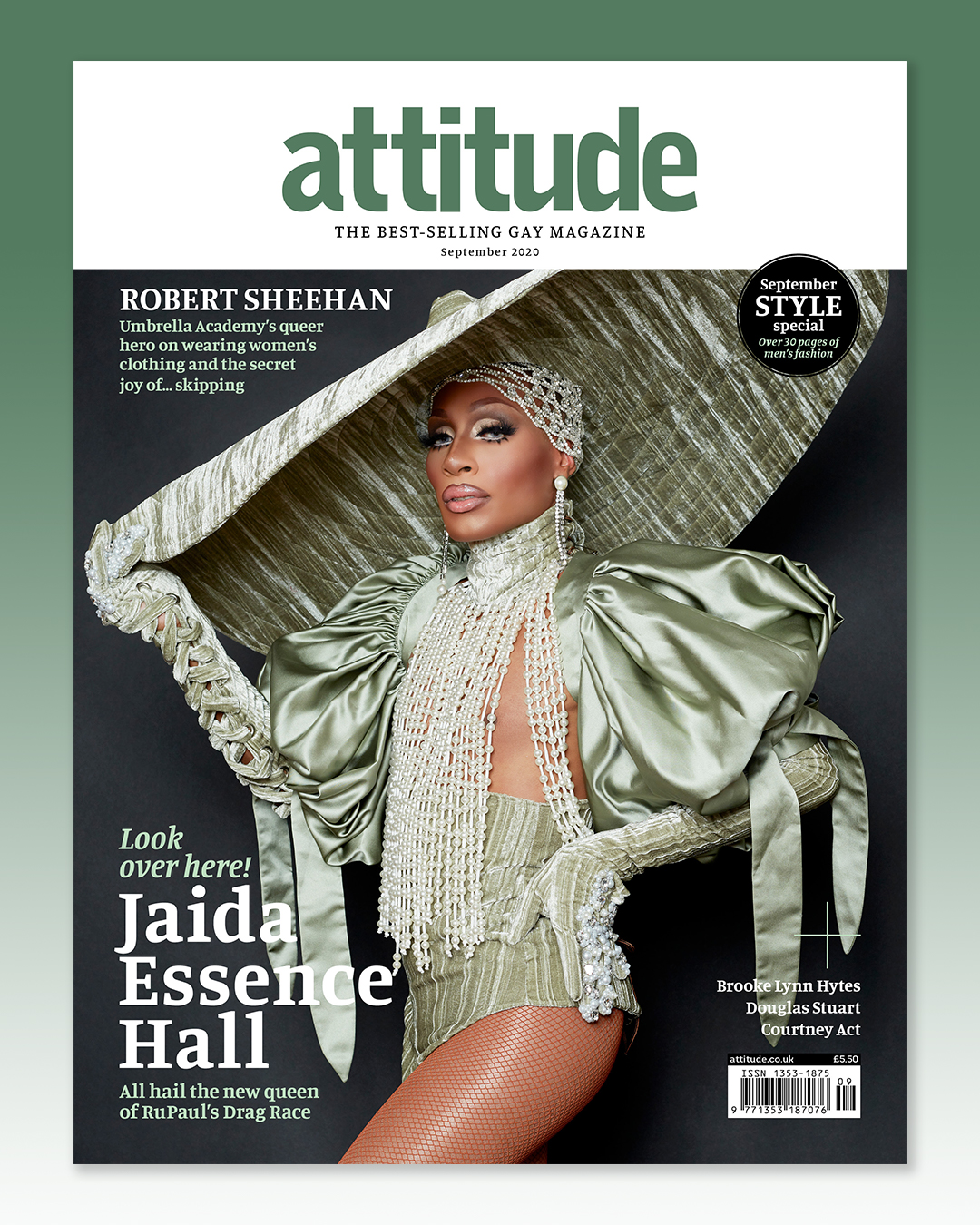Jaida Essence Hall on surviving growing up Black and queer in a ‘terrible’ neighbourhood
The drag superstar's secret? The unconditional, unwavering love and support of her family.
By Will Stroude
As the final hair flip of a Ciara-soundtracked living room lipsync secured Jaida Essence Hall the RuPaul’s Drag Race season 12 crown earlier this summer, it was hard to imagine a queen who’d been more the picture of self-assurance as they were announced the world’s newest drag superstar.
Emerging victorious from one of the tightest fields in years, the 32-year-old queen from Milwaukee – aka performer Jared Johnson – had won over both fans and the judges with fierce looks, a fiesty yet dignified personality, and a pageantry that had perhaps been missing from recent finale line-ups.
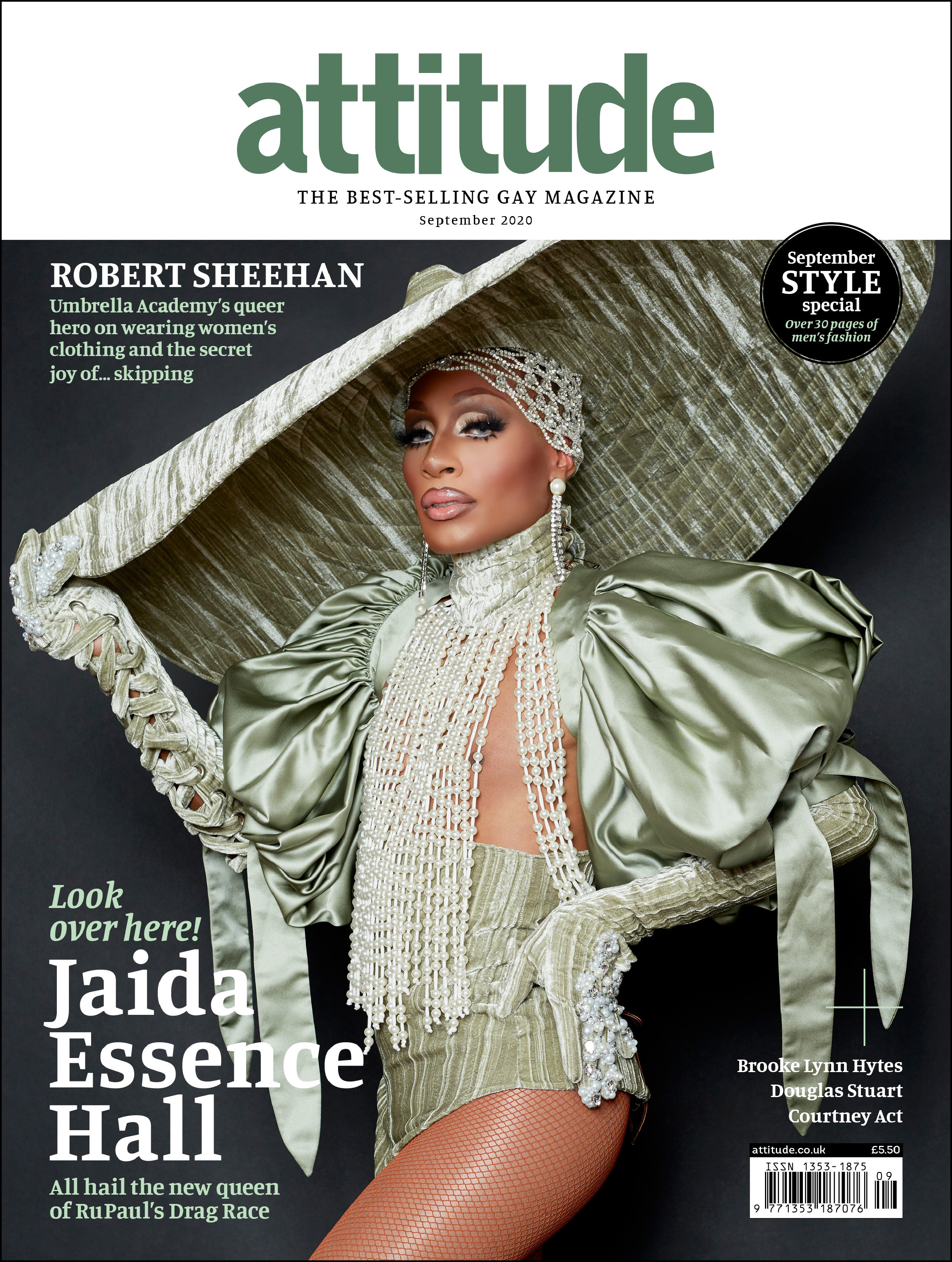
Jaida Essence Hall wear Andrea Montoya for the Attitude September issue (Photography: Magnus Hastings)
It goes without saying that Jaida Essence Hall is here to stay (and indeed, slay) but as she explains in the Attitude September issue, out now to download and to order globally, the grounded self-confidence she exudes is derived from the unconditional, unwavering love and support of her family – something that sadly remains all too rare for many young queer kids growing up on the ‘wrong side’ of town.
“I always felt that there was something different about me”, Jaida recalls as she leaves lockdown behind to serve look after look on the streets of LA.
“I have five brothers, all of them had particular traits, and I had a very feminine voice. I switched my hips and had completely different interests.
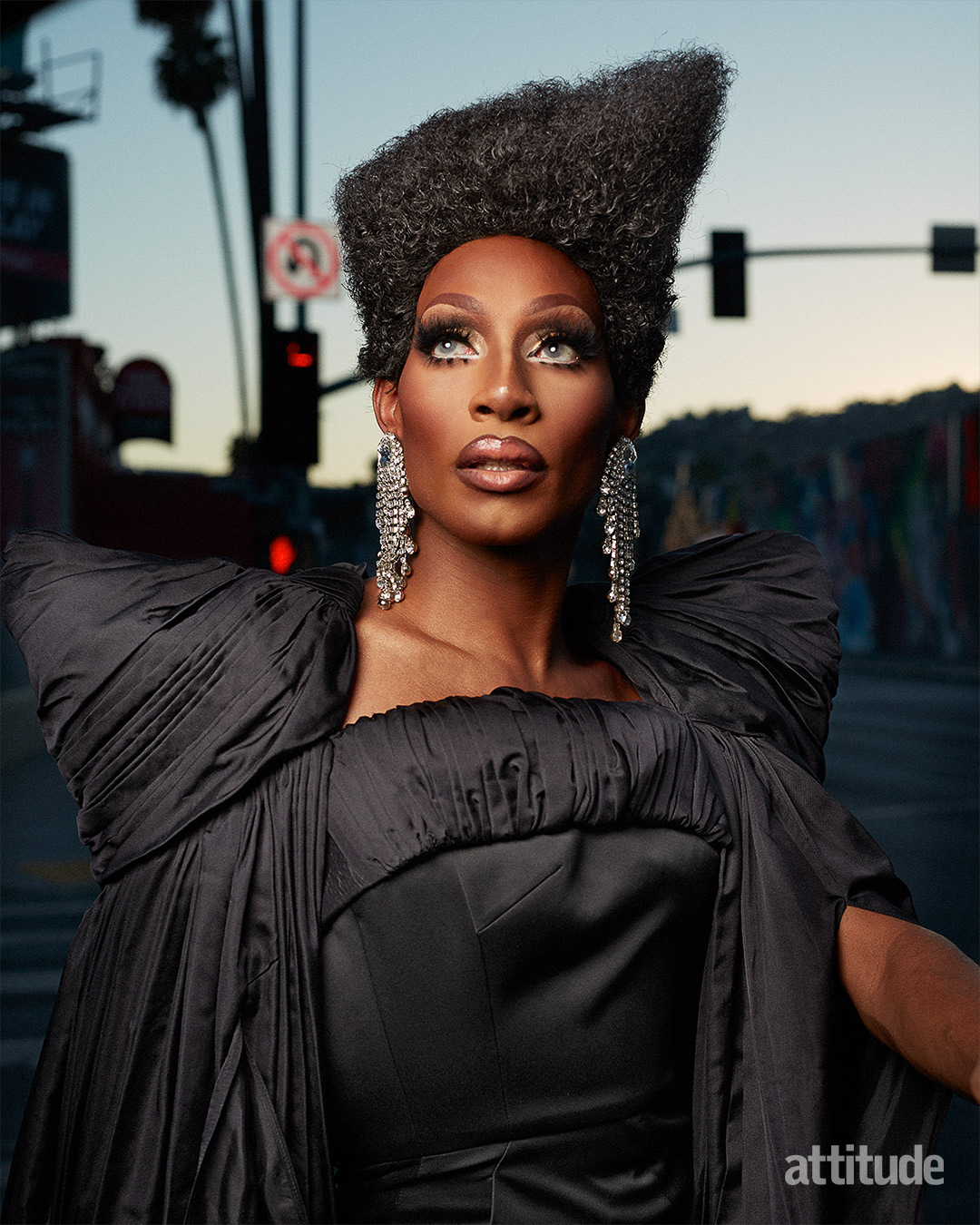
“Growing up in a terrible neighbourhood, it was very easy to be a target. But despite how different I was, I was so happy that I had my brothers in my family to support me, because they wouldn’t let anyone hurt me.”
She adds: “Growing up queer, [homophobia is] sadly one of those things we all experience, especially when your queerness is seen in all that you do.
“Being different from what people normally saw, or what they thought men should be, made me a target for people.
“I’m thankful that I had a family who understood that I was different, but never made me feel bad about it, or judged — that gave me the confidence to be who I am and love it.
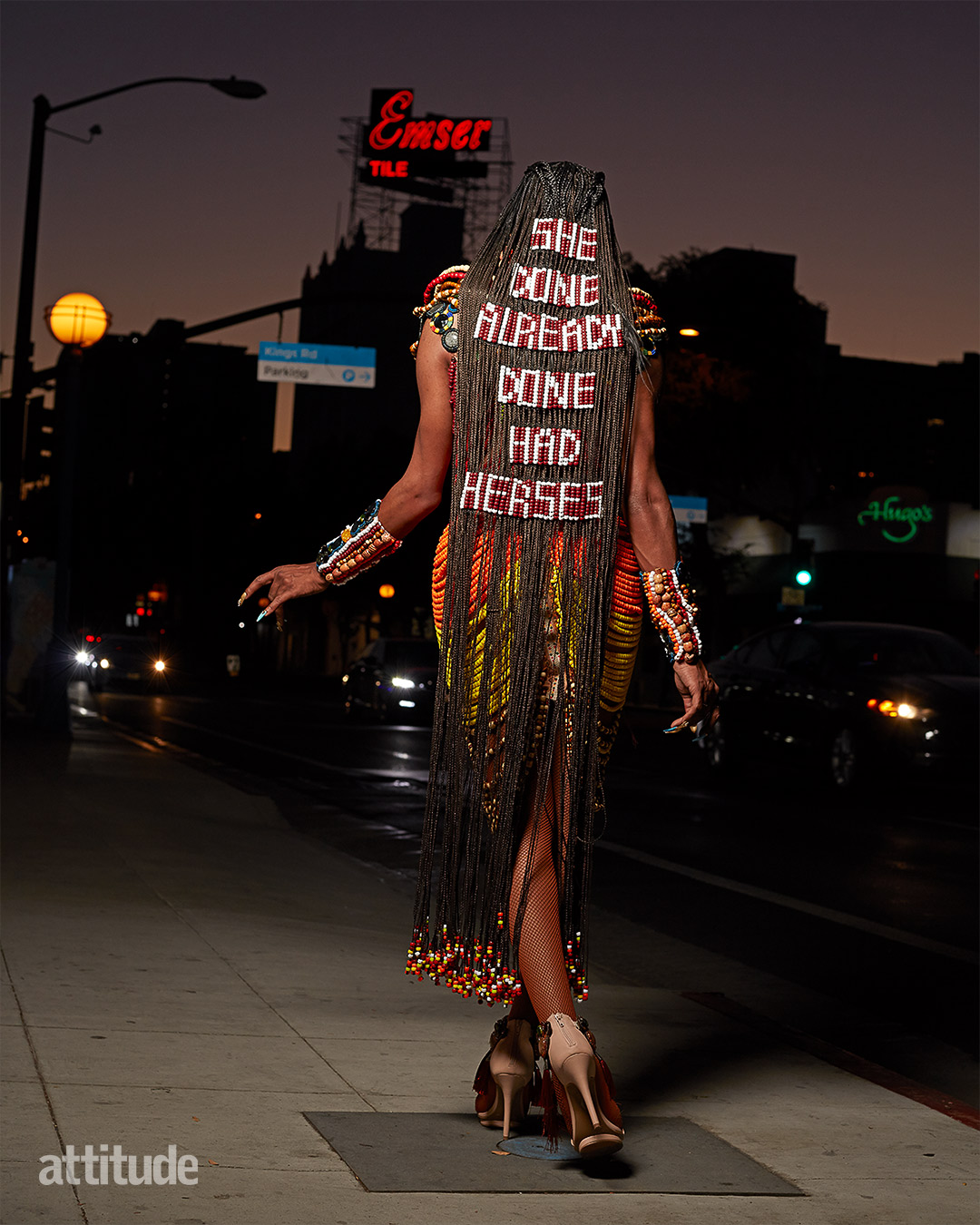
Jaida wears full look by Joshuan Aponte (Photography: Magnus Hastings)
“Sometimes it’s still a struggle, but every day I’m learning to love myself more and more.”
As well as her siblings, Jaida can also depend on the support of her partner of 13 years, who was among the first to encourage her to get into drag.
Naturally, her family accepted her new partner with open arms.
“My family never really reacted to my sexuality in any sort of way. I was always me and they’ve always accepted me for being me”, Jaida says.
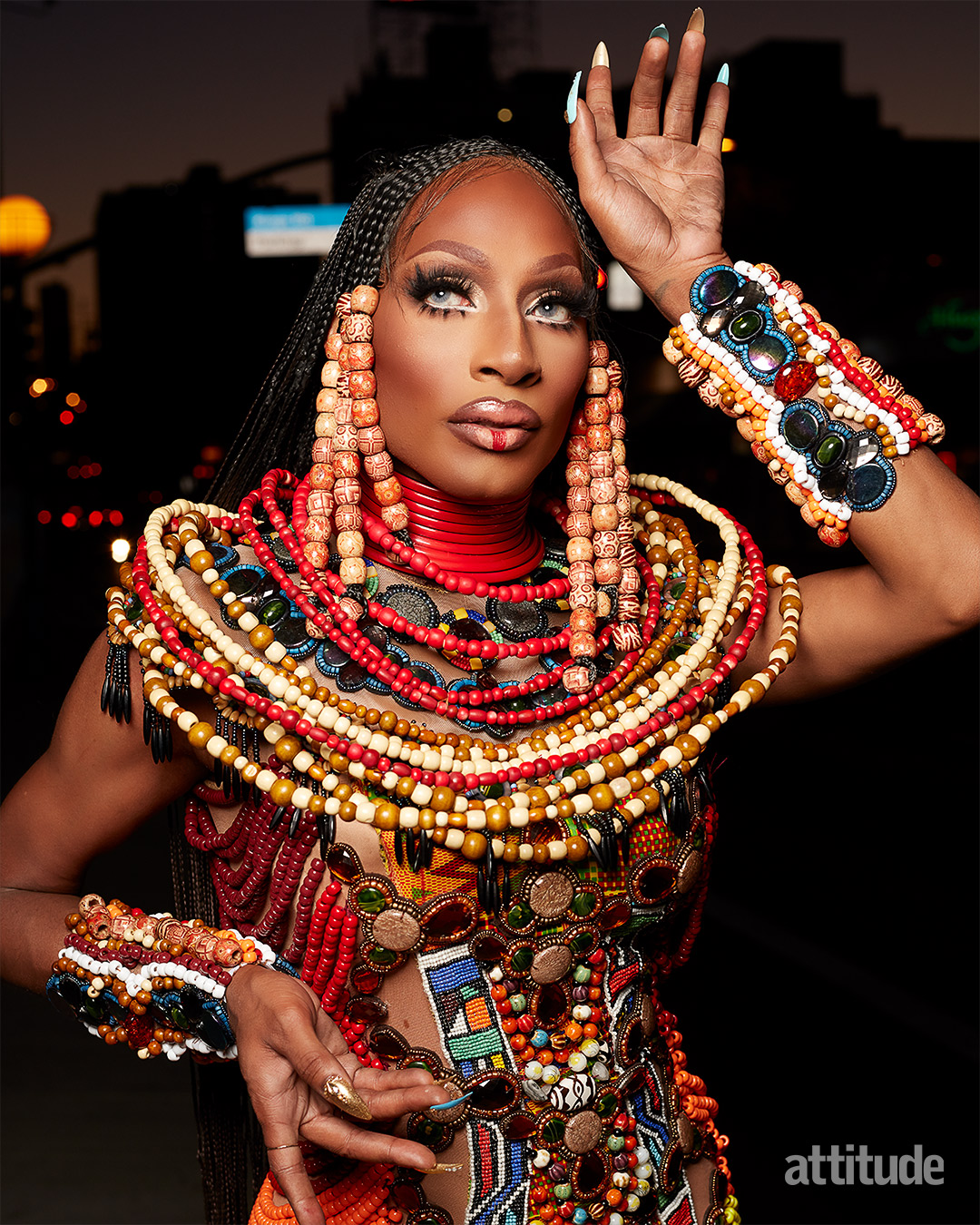
Jaida wears full look by Joshuan Aponte (Photography: Magnus Hastings)
“When I brought my boyfriend [to meet] them for the first time, there was no conversation, no anything; it was just love, like it’s always been, and I’m so grateful for that.”
American’s Next Drag Suprstar adds: “Queerness, for me, means I understand [that] love is love; that I can love whatever brings me joy in life.
“It means that I might not be what a lot of people expect or want me to be, but [I’m] loving all of it regardless.”
Read the full interview in the Attitude September issue, out now to download and to order globally.
Subscribe in print and get your first three issues for just £3, or digitally for just £1.54 per issue.
